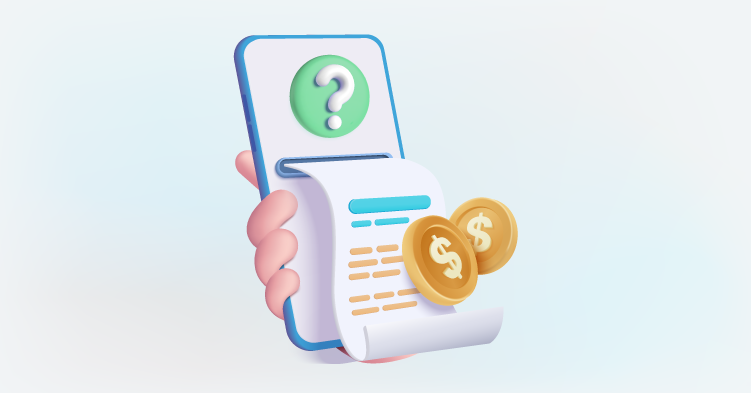When emergencies arise and you feel like you have nowhere else to turn, a payday loan may seem like a good idea. However, it’s important that you understand how payday loans work and the risks involved when taking out short-term, high-interest loans.
Here are some things to consider when it comes to payday loans — their costs and risks, as well as a few payday loan alternatives for borrowers with bad credit.
What Is a Payday Loan and How Do They Work?
Payday loans are short-term loans designed to help people access cash to cover emergencies or unexpected expenses until their next paycheck. You typically need to repay the loan in full within a few weeks, or on your next payday. Keep in mind that state laws may prohibit payday lending.
These loans typically don’t require a credit check or a lot of paperwork. Payday lenders will often have you write a post-dated check for the full amount you owe (the loan amount plus any fees and interest). When the loan is due, the lender will cash the check. This means you’ll need to have enough money in your account when the check is cashed to cover the repayment.
Payday loans almost always come with very high annual interest rates. They also can be hard to repay because they require repayment in a single lump sum in a short period of time. Because of this, they are typically only used for emergency expenses.
How Do Payday Loans Work Online?
Online payday loans are similar to in-person payday loans — you receive a lump sum of cash to cover your expenses that will need to be repaid in full within a short time. However, the application process and delivery of funds might differ.
When applying for a payday loan online, you can search for different lenders operating in your state. Be sure to do your research and read the lender’s reviews online. It’s important to keep an eye out for scams and unreliable lenders.
Similarly to storefront lenders, there are often minimal approval requirements. You can visit a payday lender’s website and complete an online application and provide them with your bank account information. If you’re approved, the lender will send the money by direct deposit to your checking account.
You may have the option to repay this personal loan by sending a check, but often you can authorize the lender to withdraw the money owed directly from your bank account on the due date.
What Do I Need to Apply for a Payday Loan?
Payday loans often have very minimal approval requirements — this is what makes them attractive to borrowers with bad credit. Depending on your state’s laws and the lender you choose, you may need:
- Proof of income or employment
- Proof of identity
- A valid bank account
- Contact information
Payday lenders may also require a post-dated check or access to your bank account for repayment.
What Are the Risks of Taking Out a Payday Loan?
Payday loans come with many risks that borrowers should be aware of.
High interest rates and short loan terms. Payday loans often come with extremely high interest rates — the average annual percentage rate for in-store loans is about 400%. This can make repayment difficult, especially with a short loan term, causing borrowers to rollover the loan and increasing the cost of borrowing even more.
High fees. Payday lenders may also charge additional fees, such as origination fees, finance charges and late payment fees. These can add up fast and make it even more difficult to repay the loan.
It can be bad for your financial stability. Relying on payday loans can destabilize your personal finances. The high costs of borrowing and short loan terms can eat into your income, leaving you with less money for essential expenses. This can cause you to fall into a cycle of debt where you constantly need to borrow money in order to cover your costs.
How Much Can You Borrow Through a Payday Loan?
The amount you can borrow through a payday loan is typically determined by state law. These loans are usually for smaller amounts, ranging from a few hundred to a few thousand dollars. Many states cap the amount you can borrow through payday loans at $500.
How Much Do Payday Loans Cost?
Payday loan costs such as interest rates and fees can vary significantly. They’re regulated by the state and through the Consumer Financial Protection Bureau (CFPB). Payday loans are notorious for their high interest rates and fees, so it’s important to review your loan terms carefully before you take out a payday loan.
There may be other risks and costs to consider based on your personal situation and the products and services being offered.
What Happens if You Can’t Repay a Payday Loan?
If you’re unable to repay your loan, the lender may charge you late fees or other penalties. The lender can send your debt to a collection agency or they may garnish your wages.
Rollovers. A rollover, also referred to as a loan extension or renewal, allows borrowers to extend their loan — though this isn’t allowed in all states. Rollovers may provide temporary relief, but they can quickly accumulate more debt and make it even harder to repay the loan.
Will Payday Loans Affect My Credit Score?
Though most payday lenders do not report to the credit bureaus, if you fail to repay the loan the debt may be sent to collections. This can have a significant negative impact on your credit report.
What Are Some Alternatives for Borrowers With Bad Credit?
A poor credit score can make accessing credit more difficult. However, borrowers with bad credit have other options to consider.
Online loans. Online loans often have less stringent requirements than banks or credit unions. Many offer products like personal installment loans that can provide a lump sum of cash or lines of credit that give you access to funds you can draw when you need a cash advance.
They can offer you quick cash in emergencies with easy applications and fast funding. These loans may also come with high interest rates, but longer repayment terms spread out the cost into smaller, more manageable bi-weekly or monthly payments. This type of borrowing can still be high cost, so make sure to carefully read the terms and evaluate your options before deciding if this is right for you.
Secured credit cards. A secured credit card requires borrowers to have collateral to secure the credit line. This could be a savings account or certificate of deposit. The amount you deposit will often be your credit limit. These types of credit cards can help you build your credit score with on-time payments and they’ll often have a lower interest rate than some of the other options.
Borrowing from friends and families. In some situations, it may be better to get a small loan from a friend or family member. Consider outlining when and how you plan to repay them to avoid disputes and awkward situations down the road.
Other types of assistance. You can explore your local community or government websites to find helpful financial services and assistance with bills. There are countless resources that can help you cover expenses such as utility bills, living costs and more.




